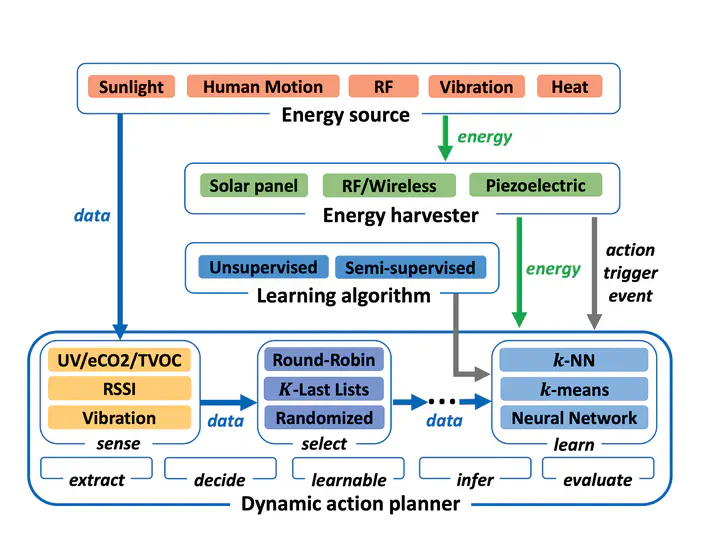
Abstract
This paper introduces intermittent learning — the goal of which is to enable energy harvested computing platforms capable of executing certain classes of machine learning tasks effectively and efficiently. We identify unique challenges to intermittent learning relating to the data and application semantics of machine learning tasks, and to address these challenges, we devise 1) an algorithm that determines a sequence of actions to achieve the desired learning objective under tight energy constraints, and 2) propose three heuristics that help an intermittent learner decide whether to learn or discard training examples at run-time which increases the energy efficiency of the system. We implement and evaluate three intermittent learning applications that learn the 1) air quality, 2) human presence, and 3) vibration using solar, RF, and kinetic energy harvesters, respectively. We demonstrate that the proposed framework improves the energy efficiency of a learner by up to 100% and cuts down the number of learning examples by up to 50% when compared to state-of-the-art intermittent computing systems that do not implement the proposed intermittent learning framework.